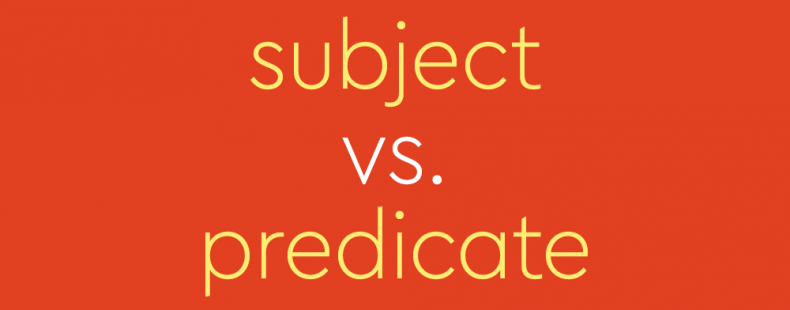We all write every single day, whether it’s a text message, report, or email. And that means we all compose sentences that are crafted from different parts. Yup, there are different parts of sentences. And guess what? Learning what the different parts of a sentence are called can show a mastery of language.
subject vs. predicate
By elementary school, kids begin learning about the different parts of a sentence. These parts give each word a job. And every complete sentence needs two things: a subject and a predicate. But what exactly are they?
The subject of the sentence is what (or whom) the sentence is about. In the sentence “The cat is sleeping in the sun,” the word cat is the subject.
A predicate is the part of a sentence, or a clause, that tells what the subject is doing or what the subject is. Let’s take the same sentence from before: “The cat is sleeping in the sun.” The clause sleeping in the sun is the predicate; it’s dictating what the cat is doing. Cute!
How can you tell the difference between a subject and a predicate?
One way to remember the difference between the two is that the subject will be a noun or pronoun. The predicate will contain a verb in addition to a possible modifier.
WATCH: We Asked: How Do You Remember The Definition Of A "Noun"?
Test time: Can you identify the subject and predicate?
Let’s test our new skills! We’ll build a sentence and you guess the subject and predicate. Ready? Go!
1. He reads.
Answer: This is pretty simple, as there are only two words. The subject is he, and the predicate is reads.
Can you still identify the subject and predicate with more words?
2. He reads the book.
Answer: The subject is still he, but the predicate has some extra words: reads the book. Since it’s still modifying the subject and contains a verb, it’s still serving the same function.
Are you ready to kick it up a notch?
3. He reads the book in the park on Tuesdays.
Answer: Can you guess the subject? It’s still he! The predicate is slightly more complicated: reads the book in the park on Tuesdays. Yup, all of it.
How about when the subject isn’t at the start of the sentence?
4. Maria’s sisters are going to the pool.
Answer: The subject in this sentence isn’t Maria, even though at first glance it seems like it is. This sentence is actually about Maria’s sisters; they are the subject. The predicate is are going to the pool because it shows what the sisters are doing.
Let’s try one more:
5. Aileen really liked the piece of artwork because it reminded her of her childhood.
Answer: If you identified Aileen as the subject, you’re correct. Likewise, if you said it, you are also correct. This sentence has two parts, and because joins the two. Aileen is the subject of the predicate really liked the piece of artwork. It is the subject of the predicate reminded her of her childhood.
Another way to practice the subject and the predicate is to illustrate simple pictures of actions and describe who (the subject) is and what they’re doing (the predicate). Use your imagination and have fun with it. There are endless combinations of subjects and predicates. Here’s one more good one:
I (subject) learned something new today (predicate)!














